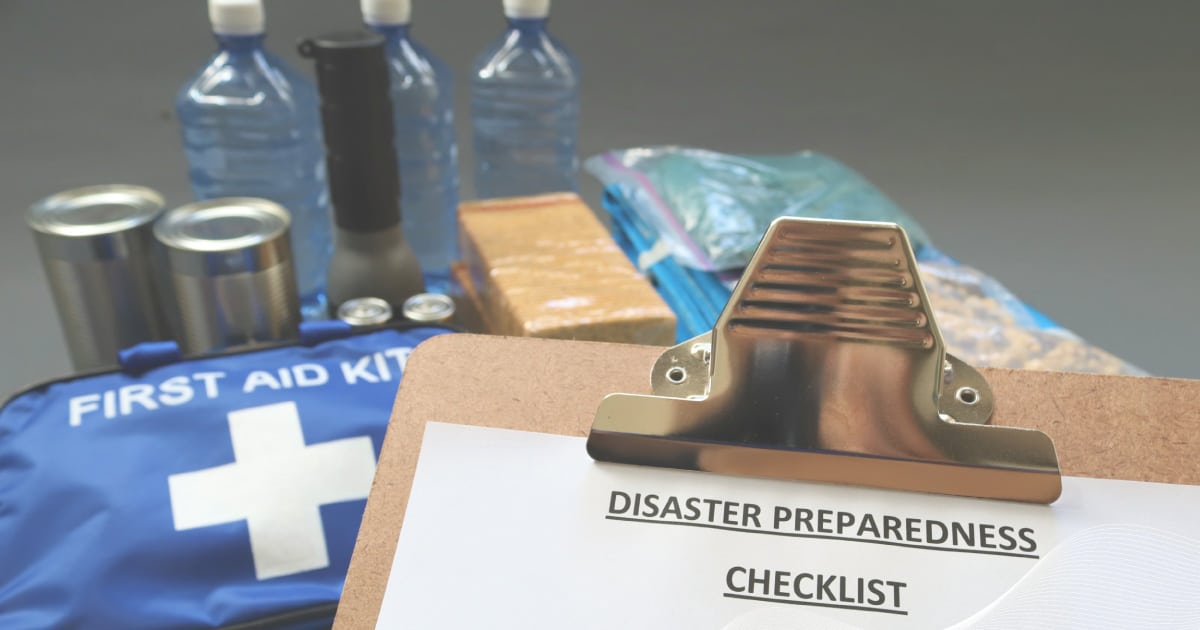Hurricane Season Safety Tips - NEC Coop
Jul 26, 2023 — Resources

As temperatures rise, Texans embrace the calm and warmth of the summer season. However, state and local authorities are cautioning the public to be prepared for potential disasters, and their concerns are justified.
The summer marks the start of the Atlantic Hurricane Season, and despite hopes for a less active season compared to previous years of intense activity, there are no guarantees.
Continue reading to know some hurricane season safety tips.
Length of Hurricane Season
The period of hurricane activity spans from June 1 to November 30, with the highest frequency of these intense storms happening in August and September. Approximately twelve storms develop yearly, gradually advancing towards the Gulf of Mexico and along the coastline.
Preparing for a Hurricane
The first step to hurricane preparedness involves creating a complete hurricane plan. It is important to identify places where you can seek shelter and have a well-defined evacuation plan in place. Given the unpredictable nature of storms, it is always wise to be prepared, even if you believe your current location is safe.
Gathering Essential Supplies
For complete hurricane readiness, gather different kinds of supplies, including food and water, first aid items, pet necessities, communication tools, and a well-prepared emergency kit.
Food and water
Make sure that you have enough supply of food and water to endure the storm. Do not delay preparations until the last moment, as grocery stores, restaurants, and food delivery services are typically closed 24 hours after a major storm. It’s always wise to have non-perishable food and water readily accessible.
To determine the required amount of water, consider that each person needs a minimum of one gallon for daily consumption. Multiply this quantity by the number of individuals in your household to calculate the total water requirement. The best way to stay prepared is to purchase several large 3-gallon water jugs and store them in your pantry.
Always maintain a stock of nutritious and filling non-perishable food items in case a hurricane hits. Being confined to your home without electricity for several days can be challenging, so it is good to stock up on non-perishables. Many canned food options can be eaten safely without heating, such as chilli and soups.
Include these items on your shopping list and store them in a cool, dry location in your home:
- Canned soups
- Canned beans
- Canned vegetables
- Canned tuna
- Applesauce
- Cereal
- Dried fruit
- Chilli
- Fruit preserves and jams
- Energy bars
- Nuts
- Trail mix
- Jerky
- Shelf stable bread
- Almond butter or peanut
First aid
When assembling your own first aid kit, make sure that it includes the following items, although most pre-packaged kits usually have everything you need:
- Antiseptic wipes or alcohol
- Adhesive paper tape for dressings or gauze
- Bandages in various shapes and sizes
- Antacids
- Eye drops
- Disposable gloves
- Gauze pads
- Hydrocortisone and antibacterial cream
- OTC pain relievers
- OTC allergy relief
- Sterile dressings
- Small pair of scissors
- Tweezers
To ensure the well-being and safety of individuals with medical conditions requiring medication, maintain a supply can last them for at least a week. If you or a member of your household rely on medications administered through syringes, such as insulin, keep a week’s worth of syringes exclusively for emergency situations. Do not be caught in the middle of a storm without the supplies that your family needs to keep yourselves healthy and safe.
Pet supplies
Make sure that you have enough supply of pet food, water, and medication for your furry companion to last for a week in case of an emergency. Also, it’s important to have a means of safely containing your pet if there’s a need to evacuate. For dogs, a leash may suffice, but it’s advisable to have a crate or carrier readily available. For cats, have a reliable hard or soft carrier, as travelling and disruptions to their routine can make them unpredictable and anxious.
Communication
Having a reliable means of communication is very important to receive emergency alerts and instructions from authorities. Don’t fully rely on your phone or laptop, as you may experience power outages or lose access to Wi-Fi and a stable phone signal. Have backup external batteries readily available in case of power failures or internet disruptions. Also, it is best to have a battery-powered radio or hand-crank radio to stay informed through news broadcasts in case cellular signals become unreliable.
Your family’s Go Bag
An essential preparedness item is a “go bag” or “bug out bag,” which is a fully packed emergency kit containing all the necessary supplies for a minimum of three days in case evacuation becomes necessary. Keep these items together in a box for easy retrieval.
Ensure that the following items are included:
- Toiletries
- Identification cards
- Water
- Changes of clothes
- Food
- External battery
- Flashlight
- Map of your city
- Charge cords
- Pet supplies and food
Protect your home
To protect your home from the impacts of a hurricane, here are some safety tips:
- Install or open hurricane shutters
- Protect your windows
- Strap down your roofs
- Secure outside structures
- Caulk around doors and windows
- Trim your trees
Staying safe during a hurricane
Here are some important safety tips to help protect your family and home from the impact of a hurricane:
- Stay indoors
- Bar the door
- Beware of downed electric lines
Preparation is key
The arrival of hurricane season forces us to examine our readiness for natural disasters. Avoid being caught off guard and scrambling for supplies at the last minute. Take proactive steps today by keeping in mind these hurricane season safety tips and stocking up on everything necessary to ensure the safety of yourself and your loved ones.
Sources:
“Experts predict “near-normal” 2023 hurricane season of 12 to 17 named storms,” Texas Tribune, https://www.texastribune.org/2023/05/25/texas-gulf-hurricanes-2023/
“Tropical Cyclone Climatology,” National Hurricane Center, https://www.nhc.noaa.gov/climo/
“What Should You Do Before a Hurricane?” American Red Cross, https://www.redcross.org/get-help/how-to-prepare-for-emergencies/types-of-emergencies/hurricane.html
“Preparing for a Hurricane or Other Tropical Storm,” Centers for Disease Control and Prevention, https://www.cdc.gov/disasters/hurricanes/before.html
“How to Prepare for a Hurricane,” Ready.Gov, https://www.ready.gov/sites/default/files/2020-03/fema_how-to-prepare-for-hurricane.pdf
Voted #1 Electric Provider
We were recently voted the #1 Electricity Provider by the Corpus Christi Caller-Times’ Best of the Best Awards for the 7th year running!
Benefits of Membership
As a member of our co-op, you’ll enjoy the following benefits:
- You’ll get a share of our profits.
- You won’t be locked into a long-term contract.
- You’ll get a simple, competitive rate with no surprise fees or markups.
- You can get a $50 bill credit for every new member you refer.

